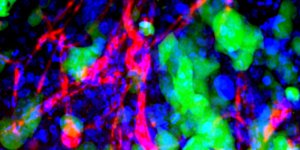| News / Science News |
Loneliness Is Bad for Heart
Loneliness is bad for the heart and a strong predictor of premature death. The study found that feeling lonely was a stronger predictor of poor outcomes than living alone, in both men and women.
The study conducted by The Heart Center, Copenhagen University Hospital, Denmark, investigated whether poor social network was associated with worse outcomes in 13,463 patients with ischaemic heart disease, arrhythmia (abnormal heart rhythm), heart failure, or heart valve disease.
Data from national registers was linked with the DenHeart survey, which asked all patients discharged from April 2013 to April 2014 from five heart centres in Denmark to answer a questionnaire about their physical and mental health, lifestyle factors such as smoking, and social support.
Social support was measured using registry data on living alone or not, and survey questions about feeling lonely -- Do you have someone to talk to when you need it? Do you feel alone sometimes even though you want to be with someone? It was important to collect information on both, since people may live alone but not feel lonely while others cohabit but do feel lonely.
Feeling lonely was associated with poor outcomes in all patients regardless of their type of heart disease, and even after adjusting for age, level of education, other diseases, body mass index, smoking, and alcohol intake.
Loneliness was associated with a doubled mortality risk in women and nearly doubled risk in men.
Both men and women who felt lonely were three times more likely to report symptoms of anxiety and depression, and had a significantly lower quality of life than those who did not feel lonely.
People with poor social support may have worse health outcomes because they have unhealthier lifestyles, are less compliant with treatment, and are more affected by stressful events.
European guidelines on cardiovascular prevention state that people who are isolated or disconnected from others are at increased risk of developing and dying prematurely from coronary artery disease.
The guidelines recommend assessment of psychosocial risk factors in patients with established cardiovascular disease and those at high risk of developing cardiovascular disease. (Tasnim News Agency)
YOU MAY ALSO LIKE






